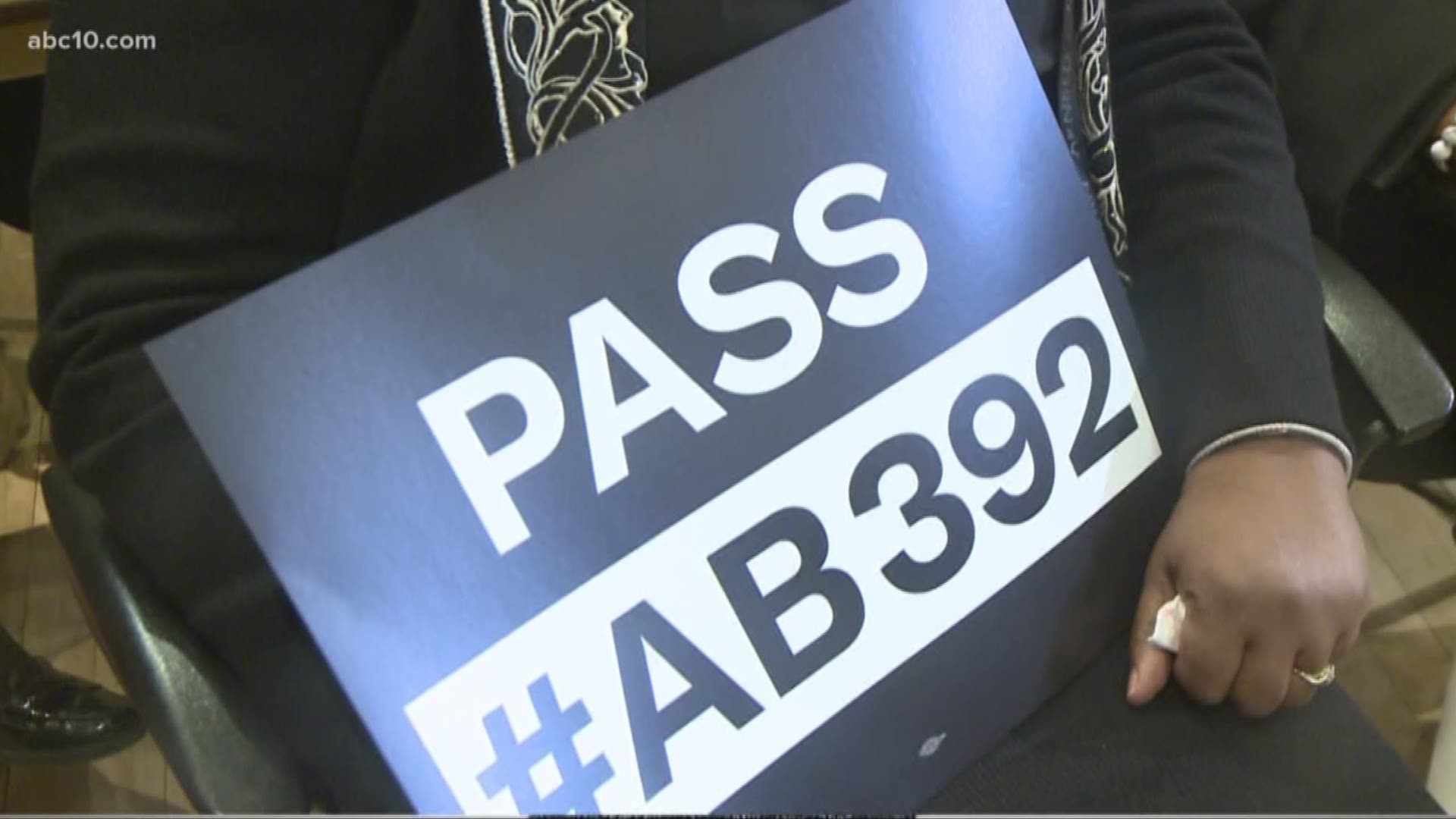SACRAMENTO, Calif. — The California Legislature faces key decisions this week, including trying to reign in police use of force, prevent rent spikes, and alter labor laws affecting workers in the gig economy. Friday is the deadline for the Assembly and Senate to pass or reject bills that originated in each chamber. If they survive, they will be considered by the opposing chamber before lawmakers adjourn in September.
Some of the measures facing key votes:
GIG ECONOMY
Companies like Uber and Lyft helped create the so-called gig economy. Legislation pending in the Assembly could set a clearer standard for who, exactly, is an independent contractor with a "gig" and who has the rights of a full-fledged employee.
Backed by labor unions, the bill, AB5, could expand rights and benefits to workers now labeled independent contractors, in turn upending some industries. It comes amid a state Supreme Court ruling and a wave of protests that are pressing policymakers to look at the fine print of workers' rights as the nature of work changes. The details, though, are bound to be subject to plenty more political wrangling this session.
HOUSING
Legislators have said repeatedly the state is in the midst of a housing crisis. But the biggest housing bill of the session, which would have overridden local zoning rules in some areas to allow for the construction of more homes, appears to be dead for the year but could be considered next year.
The Assembly has voted to reduce some of the red tape around building accessory dwelling units, or granny flats and casitas.
Two other measures are awaiting Assembly votes this week: AB1482 would cap the size of rent increases for some tenants, while AB1481 would require landlords to provide a reason for evicting tenants.
SHOOTINGS BY POLICE
Police would be empowered to use lethal force only if it's necessary to prevent death or serious harm to themselves or others under a pending Assembly bill. That's a change from the current standard that lets officers kill if they reasonably fear they are in danger.
The bill, AB 392, once was vehemently opposed by police. But it is now supported by key law enforcement groups after it was amended last week. The organizations are also backing another bill, SB230, which requires that every officer be trained in ways to avoid using deadly force. The police groups say the two bills "will go further than any other state legislation to minimize the use of force in our communities."
PRIVACY
The state adopted a sweeping privacy bill last year. Now, lawmakers and lobbyists are ironing out the details. The Senate has already stalled a bill that was a priority for privacy advocates, which would have allowed consumers to take companies to court for a range of violations of the state's new law.
Several bills are awaiting a vote in the Assembly that would create exemptions to the privacy law, such as AB 846 for customer loyalty programs and — more broadly — for security purposes, such as in AB 1416.
As Alexa and Echo devices pop up in more homes, another measure, AB 1395, would put limits on how companies can use data collected through smart speakers.
TRUMP REACTION
Democratic lawmakers argue President Donald Trump's administration is cutting away at health, environmental and workplace safety protections. Their plan is to keep in place federal rules that pre-date Trump.
SB1, which is awaiting a vote in the Senate, says many federal standards in place before Trump took office would still be enforceable under state law even if the federal government changes its policies.
SURPRISE MEDICAL BILLINGS
What you pay for health care varies by your insurance carrier, giving people incentives to only seek treatment at hospitals that are "in-network." The result can be some surprisingly high bills for people unaware a hospital is outside of their network. AB 1611 seeks to change this situation. It would ban hospitals from charging out-of-network prices to people who have health insurance.
The California Hospital Association opposes the plan, arguing hospitals and health insurance companies should have the freedom to negotiate their own rates.
HEALTH INSURANCE RATES
Premiums for small businesses and people who buy health insurance on the individual market are regulated by the state. But premiums for people who get insurance in some larger groups through their employers are not. That could change under AB 731. It would require some large-group insurance plans to be regulated similar to small-group plans. Supporters say the bill would protect more people from exorbitant premium increases.
America's Health Insurance Plans and the California Association of Health Plans said the bill would drive up premiums and encourage employers to move to self-insurance, which is not regulated by the state.

